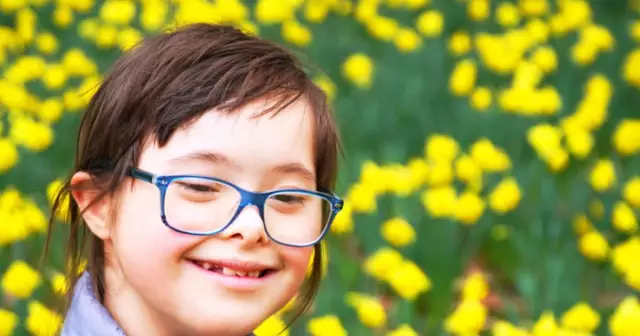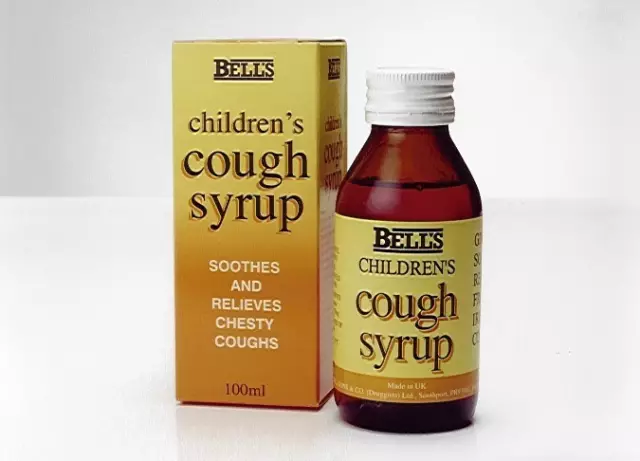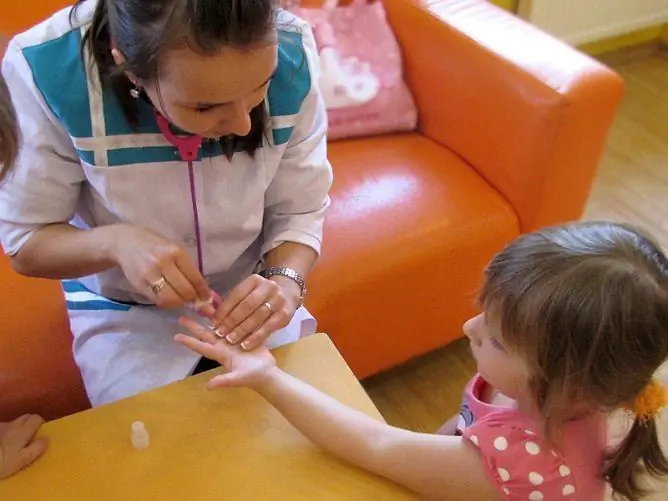- Author Rachel Wainwright wainwright@abchealthonline.com.
- Public 2023-12-15 07:39.
- Last modified 2025-11-02 20:14.
Tourette's syndrome

Tourette's syndrome is a neuropsychiatric disorder in which a person makes involuntary movements or makes involuntary sounds, being aware of their actions, but not being able to control them. In this case, involuntary movements are called ticks.
Tourette's syndrome is quite common, in 0.05% of the population. Tourette's syndrome is most often manifested in children aged 2 to 5 years, the next peak occurs in adolescence, from 13 to 17-18 years.
Boys are three times more likely to develop Tourette's syndrome than girls.
Causes of Tourette's Syndrome
Doctors believe that the main cause of Tourette's syndrome is a genetic predisposition. This is confirmed by the fact that in most cases, this, or other neurological diseases accompanied by tics, occur in first- and second-line relatives of the patient. Tourette's syndrome can also develop after taking certain types of drugs, such as antipsychotics. Some experts also consider autoimmune processes to be a possible cause of the disease, but so far there is no evidence of such a theory.
The clinical picture of Tourette's syndrome
As a rule, the first signs of Tourette's syndrome appear in children at an early age, after two and up to five years. Parents pay attention to strangeness in behavior: twitching, obsessive, repetitive movements. It can be grimacing, winking, twitching, hand clapping, jumping up, frequent blinking, even blows to the face and body. Sometimes Tourette's syndrome manifests itself as a repetitive utterance of various sounds: moans, rumbling, gurgling, repeated repetitions of the same words and phrases, echolalia - repetition of phrases after someone, at an older age coprolalia may appear - shouting curses. At the same time, a person is aware of his actions, and evaluates them as abnormal, but cannot control.
Typically, patients with Tourette's syndrome feel the onset of a tic, and can sometimes delay it, but not suppress it completely. In the Middle Ages, such uncontrolled actions led to the assumption that a demon had infiltrated a person, since the patients themselves often describe an attack as something that prompts them to commit strange actions violently, against their will.
Tourette's syndrome can proceed in waves, when periods of exacerbation with frequent attacks of tics are replaced by periods of abatement, in other cases the manifestations of the disease are constant. There is a dependence on age, in the vast majority of cases the disease subsides after puberty, and it can only occasionally, during periods of emotional instability, manifest itself as tics, and even then, as a rule, weak. Thus, Tourette's syndrome occurs several times more often in children than in adults.
With Tourette's syndrome, the child's intellectual and mental development does not suffer, there is only a psychological problem in communicating with peers, when, realizing his difference from others and not being able to overcome it, the child begins to feel defective, withdrawn and suffers from depression. Otherwise, such children are no different from their peers, and are capable, like everyone else, to achieve great success, which is confirmed by the fact that many famous personalities have Tourette's syndrome.
Diagnosing Tourette's Syndrome
The diagnosis of Tourette's syndrome is made on the basis of the characteristic clinical picture after a year of observation of the patient. When first seeking medical help, patients with similar symptoms must undergo a neurological examination in order to exclude organic damage to the brain, for example, due to a tumor process. In Tourette's syndrome, as a rule, no abnormalities can be detected, only in a small percentage of cases abnormalities in the striatum of the brain are determined.
Treatment for Tourette's syndrome

Despite the fact that the symptoms of the disease have been known since ancient times, when they were interpreted as demonic possession, and Tourette's syndrome was described as a disease back in 1885, attempts to treat it began only at the end of the 20th century.
There is no specific treatment for Tourette's syndrome. In most cases, taking pharmacological drugs is undesirable, especially for a long time, since they have side effects, the harm from which is much greater than the therapeutic effect. Typically, drug treatment for Tourette's syndrome is used during an acute condition to dull symptoms. For this purpose, antipsychotics and sedatives (sedatives) are used.
The main method of treatment for Tourette's syndrome in children is psychotherapy, aimed at ensuring that the child does not feel defective and learns to treat his illness adequately, without making his life dependent on it. Such therapy, despite the seeming secondary nature, is very important, since in children who have a simpler attitude to the disease and are able, despite it, to establish communication with peers and live a normal life, the symptoms of the disease go away much more often with age. In addition, psychotherapy teaches the child the ability to muffle the symptoms of the disease by redirecting pathological activity in a more appropriate direction.
Increasingly, in the treatment of Tourette's syndrome, they resort to play methods: specially designed games, animal therapy (therapeutic communication with animals), fairy tale therapy, art therapy and others. Such methods help the child's social adaptation and prevent the emergence of secondary psychological problems. Moderate exercise, as well as playing musical instruments, especially wind instruments, has a good effect.
Attempts have been made to treat Tourette's syndrome with surgical methods, as well as by direct electrical effects on the structures of the brain. In a number of cases, they turned out to be effective, but however, they did not find widespread use, since the risk of damage to vital centers of the brain is too high.
YouTube video related to the article:
The information is generalized and provided for informational purposes only. At the first sign of illness, see your doctor. Self-medication is hazardous to health!






